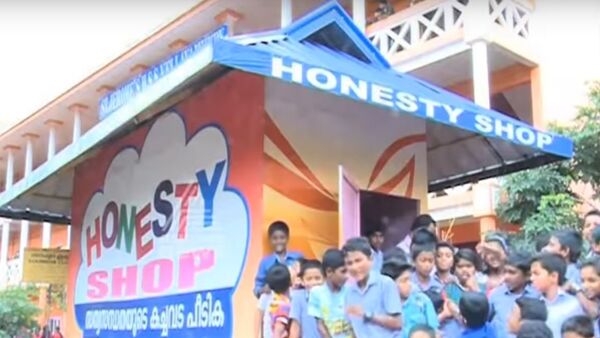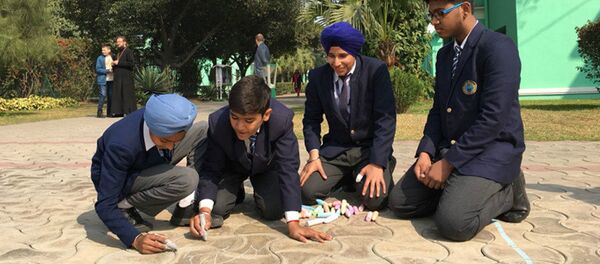The 'Honesty Shop' at St Jerome School at Vellayamkudy village in Idukki district in the southern Indian state of Kerala was opened by the school management in 2012 as an experiment testing people's integrity. The endeavor has inspired humanitarian aid workers in the area to try the idea out at relief camps.
READ MORE: Over 167 Dead in Southern India's Worst Flood in Nearly a Century
The ten-square feet shop outside the St Jerome School campus is flooded with children during school breaks and lunch hours, eager to get their school supplies and stationary at the store.
The well-kept pencils, sharpeners, erasers and notebooks are managed by kids themselves.
Six years since its opening, the small shop has grown as an inspiration for international aid workers, who tried to implement the concept after the floods struck Kerala earlier this year, with Idukki as the disaster epicenter.
Great initiative by St.Jerome's School, Idukki opening Honesty Shop for its students w/o a keeper, to pick products & drop money in the box.
— Santhosh John /Chief (@SofTOUCHchief) June 19, 2015
"We had the experience of St Jerome School but that was for kids. We were a little concerned whether this experiment would work for adults. But then we decided to take a chance. We tried to keep the necessary items like soaps, shampoos, oil etc. in the small ad hoc honesty shops in some of our relief camps. We were very happy that we got profits out of our honesty shops because people dropped cash in excess, for the items they were purchasing," Anish Elias, an aid worker from Australia, who had come to India for relief operations during Kerala floods, told Sputnik.
"I think the customers were simply appreciating the trust bestowed upon them by the organizers of the camp, and hence were moved to leave more money for the items purchased," he added.
READ MORE: Dozens Killed, Thousands Displaced as Southern Indian State Faces Severe Floods
Welcoming the experience, some of the locals though feared such camaraderie may not be possible in non-emergency circumstances.
"At a time when CCTV cameras are a norm world-over and cash is being replaced by plastic money, such an experience is a welcome change. Nonetheless, we are doubtful if this can be experimented with in a normal situation given the fact that during a crisis like floods, everyone tends to bind themselves up together in trust and care which, sadly, is not the case during non-crisis times," said Fr. Binu, a social worker from Idukki.



